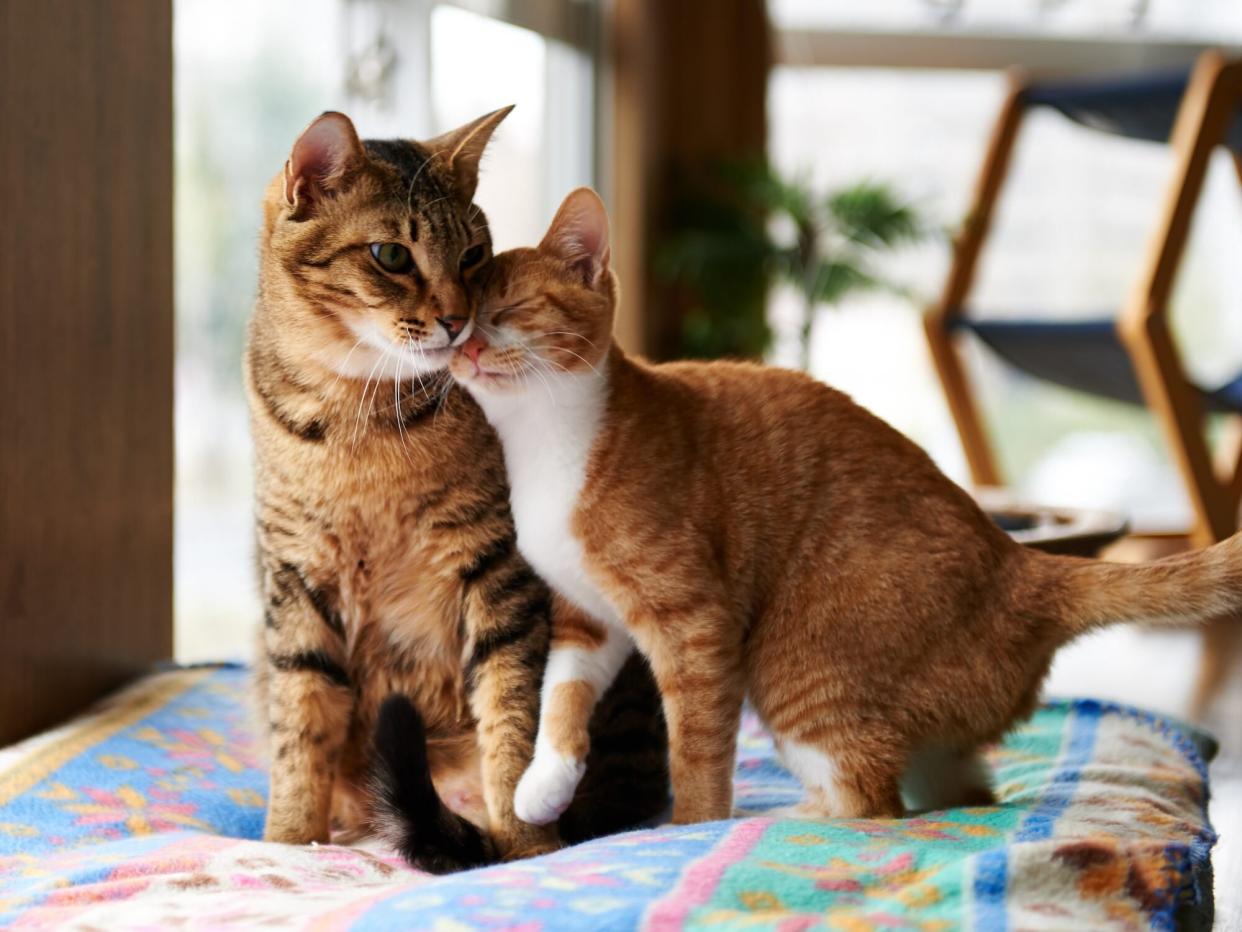Do You Have More Than One Cat? New Research Suggests They May Know Each Other's Names

Akimasa Harada / Getty Images
Cats are extremely independent creatures—they can self-groom, catch their own food, and keep themselves entertained for hours on end. And while it may seem like your cat doesn't put much thought into your presence or that of other animals, they pay more attention to their companions than you may think. According to a new study published in Nature, cats recognize the names of other cats—and they may also know the names of the humans living in their household.
To obtain their findings, researchers from Kyoto University observed felines who lived in areas with multiple cats, including domestic cats and ones who lived in 'cat cafés,' where visitors interact with the animals who live there. During their study, researchers showed each pet participant a photo of a familiar feline from the same household or café. While the image was being displayed, researchers played a recording of the owner's voice saying the actual cat's name—and then another name altogether.
Related: Does Your Cat Love You? Here's How You Can Tell, According to Experts
They found that domesticated cats spent more time looking at the image when their owner said the wrong, unfamiliar name than they did when their cat friend's real name was called out—a behavior that the study's author hypothesized might come down to confusion. What's more, the researchers noted that cats who have lived with their family for longer showed the longest durations of attention when the name and face of the feline in the image were mismatched. On the contrary, cats living in cafés didn't exhibit the same pause.
While further studies are needed to understand how cats learned this name-face association, the researchers have several hypotheses for why domesticated cats demonstrated a longer pause when presented with the images than café cats. They believe felines living in cafés are more likely to hear different names called by different guests, making it harder to learn which cat is which, while house cats likely learn by watching their owner call out one or two other names throughout the day. "Additionally, the number of cats living together might have an influence, as more cats probably means fewer opportunities to learn specific cat name-identity relationships," the researchers write.

